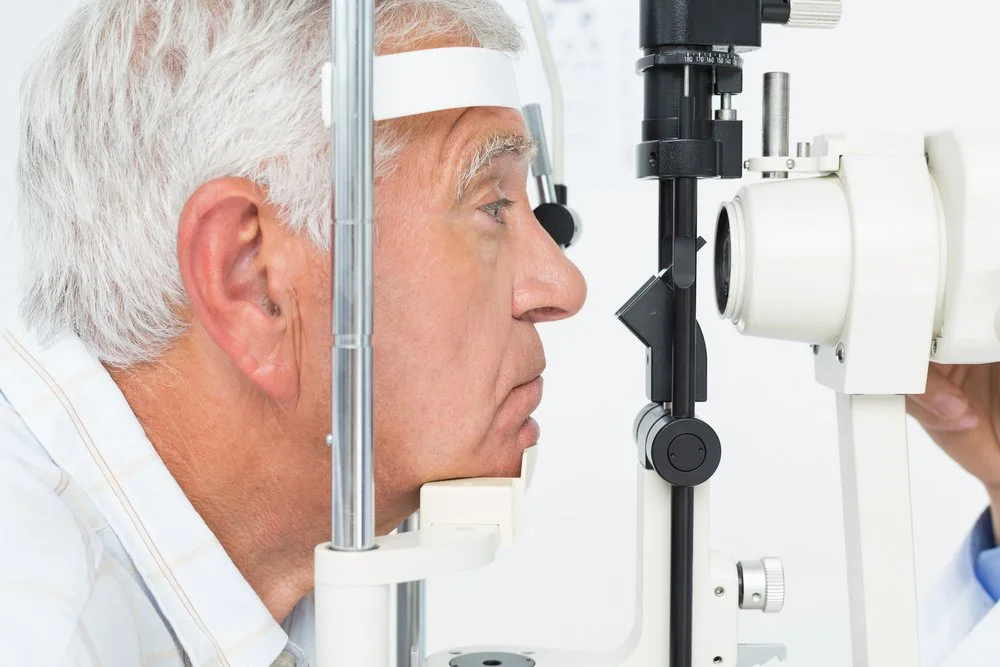How Macular Degeneration Treatment Can Help Preserve Your Vision
September 15th, 2025Are you finding it more challenging to read, see details, or recognise faces? Macular degeneration treatment is vital for keeping your vision, especially if you’re over 50.
What Is Macular Degeneration?
Macular degeneration is an eye condition that affects the macula, which is the part of the retina that is responsible for sharp central vision. As you age, your risk of developing macular degeneration increases, especially after you turn 50. Age-related macular degeneration is a leading cause of blindness among older adults.
The two types:
Wet macular degeneration happens when abnormal blood vessels grow under the retina and begin to leak blood or fluid.
Dry macular degeneration works slowly, with the macula thinning because of age changes.
Both types can cause permanent central vision loss if not treated. To diagnose macular degeneration, doctors use tools like optical coherence tomography OCT), a special camera that scans the retina, and the Amsler grid, which helps you notice blank spots and wavy lines in your vision.
Earliest Warning Signs: Why Spotting Them Early Matters
Catch these signs early to get help fast:
Trouble reading or seeing small things
Colours look faded or blurry
Straight lines that seem bent or wavy
Blank spots in the centre of your vision
Finding faces or words harder to see
If you notice these, book a routine eye exam with a retina specialist. Getting macular degeneration treatment started soon can prevent further vision loss and help you keep your independence.
Why Regular Eye Exams Matter If You’re Over 50
Changes in your sight can happen slowly and may go unnoticed. Regular eye exams are essential if you’re older than 50.
Why a routine eye exam is essential:
Problems are found early, sometimes in the early stages
Imaging like OCT can catch subtle changes before you lose vision
Other eye condition issues are spotted early, too
If you’re over 50, aim for a comprehensive eye exam every year. You may need more frequent checks if you have risk factors like diabetes, smoking, or a family history of AMD.
How Treatment for Wet and Dry Macular Degeneration Helps
Treatments for both types give you the best chance to protect your sight. Although they cannot restore lost vision, they help maintain your central vision's stability, allowing you to continue reading, driving, and more.
Wet Macular Degeneration Treatment
Wet macular degeneration can lead to rapid loss of central vision.
The most common treatment is anti-VEGF injections, which block abnormal blood vessels and stop them from leaking.
Many get these injections every four to eight weeks.
Treatments can help prevent further vision loss and sometimes improve sight. They can also reduce the risk of blindness.
Photodynamic therapy with a special laser may be used in some cases to seal leaking blood vessels.
Dry Macular Degeneration Treatment
Treatments for dry AMD used to be limited, but new options like Syfovre now help slow down the disease.
Supplements with vitamins and minerals, especially those high in antioxidants, may help some people.
Eating foods with omega-3 fatty acids (like fish), leafy greens, and colourful vegetables is helpful.
Quit smoking, control blood pressure, and protect your eyes from strong sunlight.
Some people with dry AMD may experience Charles Bonnet syndrome, which causes visual hallucinations as sight declines.
Regular appointments are essential to track your progress and update your treatment plan.
Why Treatments Matter
Getting diagnosed and starting regular macular degeneration treatment helps protect your sight in the long term:
Early intervention can delay loss and boost the effectiveness of new therapies
Regular visits catch changes quickly
You can stay independent and enjoy daily life for longer
A specialist helps you choose the treatment that works best for you
Simple Tips for Managing Macular Degeneration
Never skip a routine eye exam
Tell your specialist about any sudden changes
Use bright lighting and magnifiers for reading
Ask your eye clinic for help if your sight changes
Frequently Asked Questions
-
Yes, a diet rich in essential vitamins and minerals, omega-3 fatty acids, and leafy greens, combined with quitting smoking, can help, especially for dry macular degeneration.
-
Most people say the procedure is fast and mainly feel gentle pressure during the injection.
-
No treatment can bring back vision that has already gone. But starting treatment soon can slow further loss and sometimes improve sight for wet macular degeneration.
-
Everyone over 50, plus anyone with risk factors like diabetes, smoking, or family history, should have yearly exams.
-
Doctors use optical coherence tomography OCT, the Amsler grid, and other imaging methods in eye exams.
-
Some supplements, especially those with antioxidants and zinc, may help slow down symptoms in dry macular degeneration. Always ask your specialist what’s right for you.
-
It's when people with significant vision loss see images or patterns that aren’t really there. It is not dangerous but can be confusing.
Protect Your Vision: Book Your Consultation Today
Don’t let macular degeneration be the reason you lose your sight. Macular degeneration treatment helps safeguard your vision at every stage. Book a complete eye assessment at Springwood Eye Clinic today to stay independent and keep your eyes healthy.



